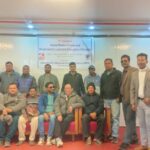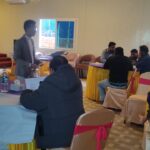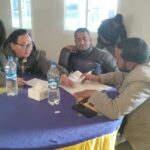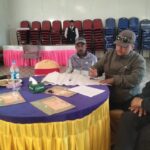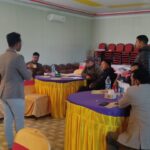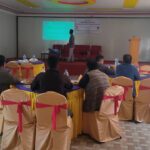Workshop on “Animal Welfare Policies and Government’s Livestock Emergency Provision”
On 14th February 2025, Animal Health Training and Consultancy Service (AHTCS), Field Office Nepalgunj, successfully conducted a one-day workshop on “Animal Welfare Policies and Government’s Livestock Emergency Provision” at Chakati Lounge, Nepalgunj. The workshop brought together a total of 17 participants from the Brick Kiln Association of Banke District, who were keen to learn about the key aspects of animal welfare and government provisions for livestock emergencies.
The workshop commenced with an informal presentation by Dr. Pramod Kumar Chaudhary. The presentation began with a brief introduction to AHTCS and its ongoing efforts, followed by an overview of the organization’s initiatives and services. Dr. Chaudhary highlighted the importance of animal welfare in Nepal and the frameworks established under Muluki Aparadh Samhita 2074 (which outlines the legal provisions related to crimes and offenses) to protect animal rights. Additionally, the workshop delved into the various Livestock Emergency Provisions provided by the Government of Nepal, focusing on their relevance in mitigating crises that affect livestock populations, such as disease outbreaks or natural disasters.
Following the presentation, participants were divided into three groups for a short interactive session. Each group was assigned a task to facilitate deeper discussions on specific aspects of animal welfare and livestock emergency measures. This collaborative activity encouraged participants to think critically about the practical applications of the policies discussed and how they could be implemented at the grassroots level.
The workshop concluded with a photo session to commemorate the successful completion of the event, where all participants gathered for a photo.
AHTCS would like to express our sincere gratitude to the Brick Kiln Association, Banke for their invaluable support in organizing the event, managing participant attendance, and ensuring smooth coordination. We would also like to thank Satyam Khabar for providing media coverage, which helped raise awareness about the workshop and its importance.

